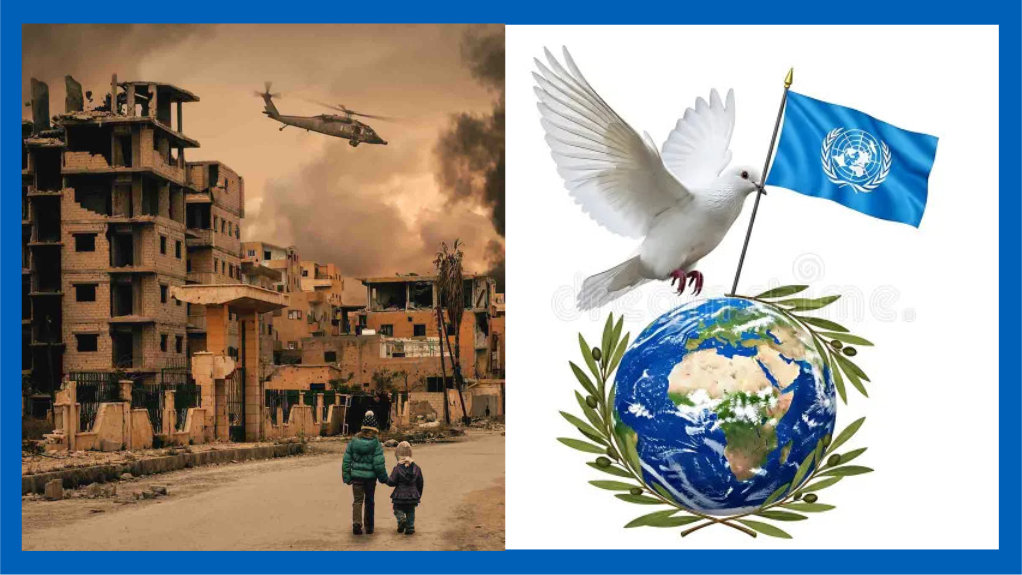
The United Nations at 80: challenges in a multipolar world order reveal one of the most turbulent moments in modern diplomacy. Established in 1945 to prevent another global conflict, the UN now faces a fractured international system dominated by U.S.–China–Russia rivalry. At its eightieth anniversary, the world body stands at a crossroads: Can it remain relevant, or will divisions among great powers cripple its mission of peace and cooperation?
The United Nations at 80: challenges in a multipolar world order are evident in the deadlock at the Security Council. Major crises in Ukraine, the South China Sea, Gaza, and Africa expose the paralysis of global decision-making. Just as Cold War divisions once locked the Council in stalemate, today’s multipolar politics replicate the same dysfunction. Member states increasingly ask whether the UN can survive another decade under such strain.
When examining how U.S.–China–Russia tensions shape United Nations diplomacy, experts point to frequent vetoes, competing narratives, and zero-sum rivalries. Washington pushes for a rules-based international order, Beijing advocates multipolarity with sovereignty as a shield, and Moscow seeks to disrupt Western influence. Together, these rivalries create gridlock in the very forum designed to foster cooperation. Diplomats warn that if these powers cannot compromise, the UN risks irrelevance.
Comparisons between Cold War history and today’s global politics are instructive. During the 1950s and 1960s, ideological battles between the U.S. and the Soviet Union often stalled the UN. Peacekeeping missions survived, but reforms failed. Today, the situation is similar, though more complex. Comparing Cold War divisions with today’s multipolar global politics shows that the UN must navigate not two, but multiple power centers—including India, the EU, and regional blocs like the African Union. This makes consensus harder, yet also more necessary.
The United Nations at 80: challenges in a multipolar world order also extend beyond geopolitics. Global crises such as climate change, pandemics, and artificial intelligence governance demand collective action. Yet U.S.–China–Russia competition overshadows these urgent issues. Experts argue that without reforms—such as limiting the veto, empowering the General Assembly, or creating specialized agencies—the UN will remain trapped in dysfunction.
Youth activists and scholars add another perspective. They argue that how U.S.–China–Russia tensions shape United Nations diplomacy should not determine the future of global cooperation. Instead, they call for a more inclusive UN that amplifies voices from the Global South. Many envision a stronger role for regional organizations, digital governance charters, and climate enforcement bodies that reflect 21st-century realities. If the UN adapts, they say, it could regain legitimacy.
Comparing Cold War divisions with today’s multipolar global politics also reveals key differences. Unlike the ideological rigidity of the past, today’s rivalries blend economics, technology, and military influence. The U.S. and China, for example, remain deeply economically interdependent, even as they clash in technology and security. This interconnectedness gives the UN more leverage—if it can mediate conflicts effectively. Failure to do so, however, risks global fragmentation into competing blocs.
So, can the UN survive great power competition and global divisions? Optimists argue yes, if reforms address structural flaws. They propose expanding the Security Council to include emerging powers like India, Brazil, and African states. Others suggest creating a global climate authority or a digital governance agency to tackle new threats. Skeptics, however, fear that without major concessions from Washington, Beijing, and Moscow, reforms will stall just as they did in the past.
At its core, the United Nations at 80: challenges in a multipolar world order force us to confront the gap between ideals and reality. The UN Charter envisions collective security, but realpolitik often dictates outcomes. The U.S. and allies invoke democracy and human rights, while China and Russia stress sovereignty and non-interference. These clashes play out in every debate, from Syria to Ukraine, leaving smaller nations caught in the middle.
Still, the UN’s role cannot be dismissed. Peacekeeping operations, humanitarian aid, and global health coordination continue to save millions of lives. Even during Cold War deadlock, the UN provided a platform for dialogue that prevented direct superpower conflict. Today, how U.S.–China–Russia tensions shape United Nations diplomacy may paralyze some decisions, but the UN remains indispensable for crisis response, international law, and development goals.
The United Nations at 80: challenges in a multipolar world order are also a test of imagination. Can the institution evolve into a forum that manages AI, cyber threats, and climate migration? Can it balance sovereignty with global responsibility? Experts believe the next decade will decide. If reforms succeed, the UN at 100 may emerge as a renewed hub of cooperation. If not, it may fade into irrelevance, overshadowed by regional alliances.
Youth voices stress urgency. As one young delegate put it: “The UN cannot be only about great powers. It must be about people. If it fails, humanity fails.” This sentiment captures the stakes. Comparing Cold War divisions with today’s multipolar global politics, the challenge is clear: avoid repeating the mistakes of the past while adapting to new realities.
In conclusion, the United Nations at 80: challenges in a multipolar world order show that survival depends on adaptation. The rivalry among the U.S., China, and Russia shapes diplomacy, but it need not determine the outcome. With bold reforms and inclusive leadership, the UN can remain a cornerstone of global cooperation. Without them, it risks becoming a relic of the 20th century.